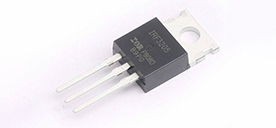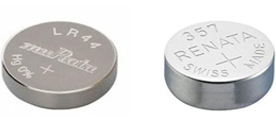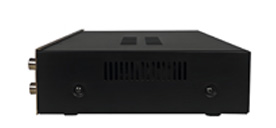Working principle and application fields of meter regulator
2023/12/7 9:59:16
Views:
A meter regulator, or energy meter adjustment device, is a device used to correct and adjust energy meters. Its working principle is to accurately measure the indication error of the electric energy meter, and then perform feedback and control according to the set standards and requirements in order to adjust the accuracy of the indication value of the electric energy meter. Meter regulators are widely used in many fields such as power systems, industrial production, and energy management to ensure the accuracy and fairness of energy measurement.
The working principle of the meter regulator includes the following key steps:
1. Indication error measurement: The core principle of the meter regulator is to evaluate the accuracy of the energy meter by measuring its indication error. Indication error represents the difference between the energy meter's indication and actual energy consumption. The electric meter regulator usually uses a standard electric energy meter as a reference, and compares its indication value with the indication value of the electric energy meter to be tested to obtain the indication value error.
2. Feedback and control: The meter regulator must have feedback and control functions to adjust the energy meter. By comparing the indication error of the standard electric energy meter with the indication error of the electric energy meter to be adjusted, the electric meter regulator can determine the direction and size of the error of the electric energy meter to be adjusted. Then, according to the set standards and requirements, the indication value is adjusted by controlling the calibration device of the electric energy meter (such as a transformer or an adjustable compensation device) so that the indication error of the electric energy meter tends to zero.
3. Calibration and adjustment: Electric meter regulators usually need to be equipped with calibration and adjustment circuits to accurately calibrate and adjust the energy meter. The calibration circuit is responsible for measuring the indication error of the electric energy meter and converting it into a control signal to control the calibration device. The adjustment circuit is responsible for accurately adjusting the calibration device according to the set standards and requirements to ensure accurate calibration of the energy meter.
The role of the meter regulator is reflected in many aspects:
1. Improve measurement accuracy: The main task of the meter regulator is to improve the accuracy of electric energy measurement. By measuring and adjusting the indication error of the electric energy meter, it can eliminate or reduce the measurement inaccuracy caused by the error of the electric energy meter itself. This ensures that users obtain fair and accurate electric energy measurement results, and promotes fairness and transparency in energy management and power transactions.
2. Ensure the reliability of electric energy measurement: The meter regulator can also improve the reliability of electric energy measurement. By regularly calibrating and adjusting energy meters, meter regulators can detect and repair energy meter faults or anomalies. This helps to detect problems with metering equipment in a timely manner and take appropriate measures to ensure continued and reliable operation of electric energy metering.
3. Support energy management and monitoring: Meter regulators also play an important role in energy management and monitoring. It provides accurate energy metering data, helping users understand energy consumption in real time and conduct energy efficiency analysis. Energy managers can use the accurate measurement data provided by the meter regulator to evaluate energy usage, identify peak and trough periods of energy consumption, and formulate corresponding energy management strategies to optimize energy utilization, reduce energy costs, and promote sustainable energy development.
4. Facilitate power trading and settlement: Meter regulators also play a key role in the field of power trading and settlement. By calibrating and adjusting electric energy meters, meter regulators ensure measurement accuracy and fairness in the power transaction process. It provides reliable electric energy measurement data for billing and settlement, safeguarding the rights and interests of both parties to the transaction. At the same time, the meter regulator also supports the power market regulatory agency in the supervision and review of power transactions, maintaining market order and a fair competitive environment.
Meter regulators are used in a wide range of applications, including power systems, industrial production, energy management and monitoring, and many other fields. Its key role is to improve measurement accuracy, ensure the reliability of electric energy measurement, support energy management and monitoring, and promote fairness in power trading and settlement. Meter regulators are an important tool to ensure fair and transparent energy metering and power transactions, and are crucial to the sustainable development of the energy industry.
The working principle of the meter regulator includes the following key steps:
1. Indication error measurement: The core principle of the meter regulator is to evaluate the accuracy of the energy meter by measuring its indication error. Indication error represents the difference between the energy meter's indication and actual energy consumption. The electric meter regulator usually uses a standard electric energy meter as a reference, and compares its indication value with the indication value of the electric energy meter to be tested to obtain the indication value error.
2. Feedback and control: The meter regulator must have feedback and control functions to adjust the energy meter. By comparing the indication error of the standard electric energy meter with the indication error of the electric energy meter to be adjusted, the electric meter regulator can determine the direction and size of the error of the electric energy meter to be adjusted. Then, according to the set standards and requirements, the indication value is adjusted by controlling the calibration device of the electric energy meter (such as a transformer or an adjustable compensation device) so that the indication error of the electric energy meter tends to zero.
3. Calibration and adjustment: Electric meter regulators usually need to be equipped with calibration and adjustment circuits to accurately calibrate and adjust the energy meter. The calibration circuit is responsible for measuring the indication error of the electric energy meter and converting it into a control signal to control the calibration device. The adjustment circuit is responsible for accurately adjusting the calibration device according to the set standards and requirements to ensure accurate calibration of the energy meter.
The role of the meter regulator is reflected in many aspects:
1. Improve measurement accuracy: The main task of the meter regulator is to improve the accuracy of electric energy measurement. By measuring and adjusting the indication error of the electric energy meter, it can eliminate or reduce the measurement inaccuracy caused by the error of the electric energy meter itself. This ensures that users obtain fair and accurate electric energy measurement results, and promotes fairness and transparency in energy management and power transactions.
2. Ensure the reliability of electric energy measurement: The meter regulator can also improve the reliability of electric energy measurement. By regularly calibrating and adjusting energy meters, meter regulators can detect and repair energy meter faults or anomalies. This helps to detect problems with metering equipment in a timely manner and take appropriate measures to ensure continued and reliable operation of electric energy metering.
3. Support energy management and monitoring: Meter regulators also play an important role in energy management and monitoring. It provides accurate energy metering data, helping users understand energy consumption in real time and conduct energy efficiency analysis. Energy managers can use the accurate measurement data provided by the meter regulator to evaluate energy usage, identify peak and trough periods of energy consumption, and formulate corresponding energy management strategies to optimize energy utilization, reduce energy costs, and promote sustainable energy development.
4. Facilitate power trading and settlement: Meter regulators also play a key role in the field of power trading and settlement. By calibrating and adjusting electric energy meters, meter regulators ensure measurement accuracy and fairness in the power transaction process. It provides reliable electric energy measurement data for billing and settlement, safeguarding the rights and interests of both parties to the transaction. At the same time, the meter regulator also supports the power market regulatory agency in the supervision and review of power transactions, maintaining market order and a fair competitive environment.
Meter regulators are used in a wide range of applications, including power systems, industrial production, energy management and monitoring, and many other fields. Its key role is to improve measurement accuracy, ensure the reliability of electric energy measurement, support energy management and monitoring, and promote fairness in power trading and settlement. Meter regulators are an important tool to ensure fair and transparent energy metering and power transactions, and are crucial to the sustainable development of the energy industry.
Related Information
-
-
Phone
+86 135 3401 3447 -
Whatsapp





